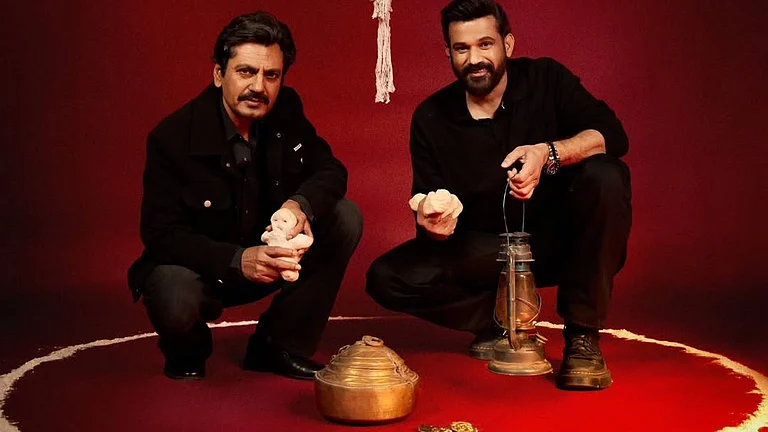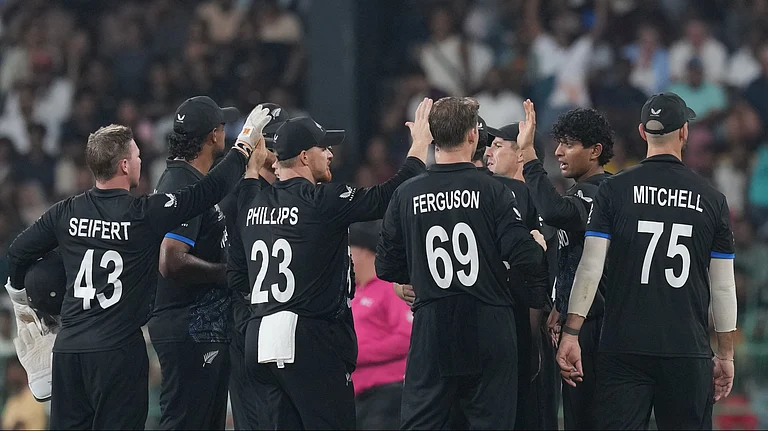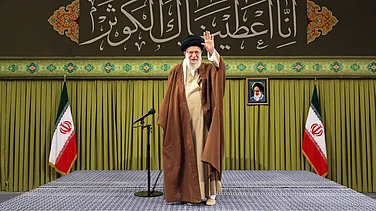My name is Mariia. I am 28 years old, and I am skinny and slightly under-confident. I have curly hair and a genuine smile.
I grew up in a small village near Rivne, a town about 320 km west of Kyiv. My family was large and poor. My grandparents went to school only for a few years before dropping out because of World War II. As kids, they survived the famine in Soviet Ukraine, now known as Holodomor (1932–33), in which millions of people perished.
My grandmother gave birth to 10 children. She delivered most of them in fields, where she worked, or at home. There were no hospitals in the village. She would return to work a few days after giving birth as she needed money to feed the other children. She never complained, all the while teaching her children and their children how to work hard. All her children benefitted from a higher education.
In 1991, when Ukraine became independent and my uncles started a family business, all my family members were employed. We were no longer on the verge of poverty. Since childhood, I was used to working on weekends and after school. We knew that life was hard and full of opportunities.
When I was in fifth grade, my family moved to Kyiv. My sister and I belong to the first generation of Ukrainians born after our country won independence; the first generation that did not suffer from repression, famine or genocide. We loved studying. It became the central focus of our lives as we had been trying to compensate for all the opportunities our ancestors lost. But this new, free life, too, has been filled with echoes of our ancestors’ experiences.
When I was 10, I was not only studying in secondary school but also taking music lessons and training with an athletic team every day. But it was also the time when I missed a lot of classes. Instead of going to school, I used to put on warm clothes, help my mother make dark bread sandwiches with butter and cheese and go to Independence Square in Kyiv.
My country was protesting.
Despite the severe cold, people put up tents on the capital’s thoroughfares. I could not understand why they gave me hot tea and cookies when I came there from my warm house to bring them food. It was the best tea I drank, flavoured with sugar and freedom. I clearly remember why we were protesting: the elections were not fair. No one wanted to have a pro-Russian president. The protest worked. We had reelections, and pro-Ukraine candidates, supported by the majority, won.
After school, I went to study Ukrainian Literature at the National University of Kyiv’s Mohyla Academy. When I was 19, I missed a lot of lectures again. The then Ukrainian president, Viktor Yanukovych, did not sign the European Union-Ukraine Association Agreement, choosing instead, closer ties with Russia. Students from my University were among the first who started peaceful protests. The police beat them up severely, but that show of police brutality woke up the whole country. That’s how another severe winter started. Again, I wrapped myself in warm clothes, made cheese sandwiches, hot tea and went to the central square. There, I met my classmates and my professors. We never had problems because of the missed lectures. We studied at the site of the protests; we also passed our exams.
I clearly remember why we took to the streets. It reminded me of the 1920s, when Ukrainian intellectuals had a prominent discussion about the country’s development. The intellectuals were aware of Ukraine’s European past; they wanted to choose the European way and stay away from Moscow. In the 1930s, they were killed due to the new policy of the coercive Russification of Ukraine.
We have a name for the time of those Ukrainian-language poets, writers and artists: The Executed Renaissance. In 2013-14, we were young, and the question of our development arose again. We did not want to be aligned with the nation that was killing and persecuting us. That’s why we were protesting and that’s why it worked. When the pro-Russian president left the country, Ukraine signed the EU-Ukraine Association Agreement. We were able to travel to Europe visa-free. I have visited 12 countries with my boyfriend of 12 years, who is now my husband.
When I was 21, I missed a lot of lectures yet again. The year was 2014, and Russia invaded Crimea. My husband’s brother left university and joined the army, the so-called dobrobat, a battalion of volunteers. Two years younger than me, he was injured during a landmine explosion and lost his leg. My husband and I stayed with him in the hospital, where we saw what war meant. Young men in the same ward had both their hands amputated, and one did not have half of his head.
When I was 23, I started writing my PhD thesis. I also started working as an editorial assistant, then Book Review section editor and, finally, as a member of the editorial board of the first international Ukrainian peer-reviewed journal in the humanities, The Kyiv-Mohyla Humanities Journal. I started translating fiction in my Masters in Philology, and I am still doing that.
In 2019–2020, I won a Fulbright Scholarship and I was visiting scholar at Columbia University in the United States. Inspired by the experience, I co-founded an NGO, the New Ukrainian Academic Community. When I was 28, I started lecturing in my alma mater. Incredibly enough, again, I missed two months of lectures. This time because of the war.
On February 24, I finished working at 2 am. At 4 am, the airstrikes woke me up. By 8 am, one of my students, Bohdan, had already joined the army. I had Covid-19 and started experiencing nausea and diarrhoea. Also, suddenly, I was menstruating. Nevertheless, at 12:57 p.m., I had a chat with my female friends, all of whom are academics. We immediately started to translate Ukrainian news stories, talking to the international media, organising protests, buying food, uniforms and undergarments, sanitary pads and tampons for women soldiers, body armour, thermal imagers, drones, coffee and chocolate. My friend Irusia and her husband drove to the Donbas, with the consignment.
Heavy Russian bombardment forced us to take shelter in a basement. It was cold. The building was shaking. But since we had internet, we were buying crypto to pay for armour and get it delivered faster.
For months, we have not slept because the Russians bombarded our cities mainly at night. We cannot sleep still because of the air raid sirens. We must work two or three jobs on top of volunteering. And yet, we can still eat cheese sandwiches and drink hot tea which tastes like freedom. Ukrainian resistance is not a surprise to me. It has always been part of Ukrainian history and of my education. The cruelty of the Russian troops is not a surprise either.
Previous generations of Ukrainians have already experienced it. Russian propaganda can claim Ukraine is a fake state but families know the truth. They can steal our history, they can rewrite our books, but they cannot rewrite our memory. When Russia invaded Ukraine, a country with an army of 2,50,000, it faced the resistance of 40 million people. We did not choose this life, but we rose to the challenge.
My country is not perfect. But we are not fighting for perfection. My country is not unique. With pleasure, I want to stress how not unique I am among other Ukrainians. We are fighting for simple things: the right to be safe at home, to be ourselves, to be able to choose our future, to have a child, to get back to education, and to write boring academic research that no one will ever read. Will I have this opportunity? I have no idea. While I am writing this sentence, I hear another air raid siren. At least, I have shared my experience with you. And today, I had an opportunity to say the most important words: “Mom, Dad, Sister, Hubby, I love you!”
Mariia, 28 years old, skinny and slightly under-confident, with curly hair and a genuine smile. From a bomb shelter.
Postscript: For my academic colleagues and me, war, trauma and resistance were theoretical discourses. Now it’s our life, and I am simultaneously a subject and object of this academic discourse. All previous generations trained me to resist, and 10 years in academia taught me to be critical in my thinking.
So, as a person whose every day may be the last, I want to say to you, ‘Make your dreams come true. You have no idea how strong you are, my sisters and brothers. I am always with you. You will make it.” And as a scholar, I will say, ‘Stick to a critical attitude, engage with the works of Ukrainian scholars, and do not ignore local knowledge. The war is not over.’
(This appeared in the print edition as "Tea That Tastes Of Sugar And Freedom")
(Views expressed are personal)
Mariia Shuvalova is a lecturer at the national university of kyiv-mohlya academy





















